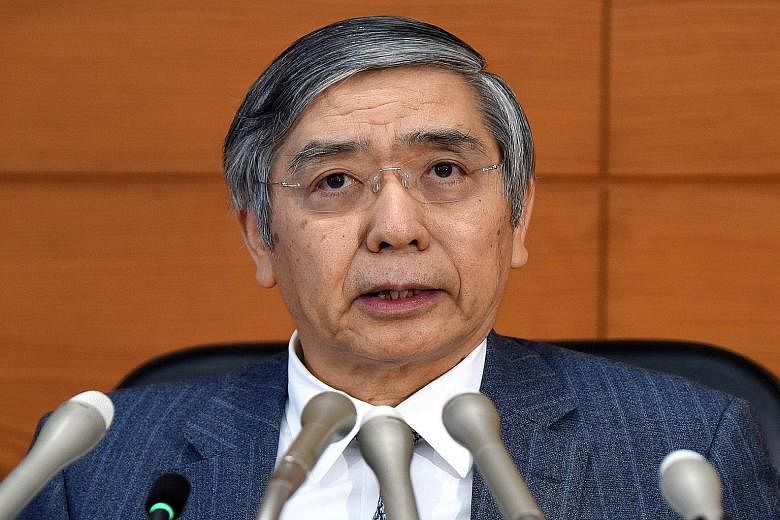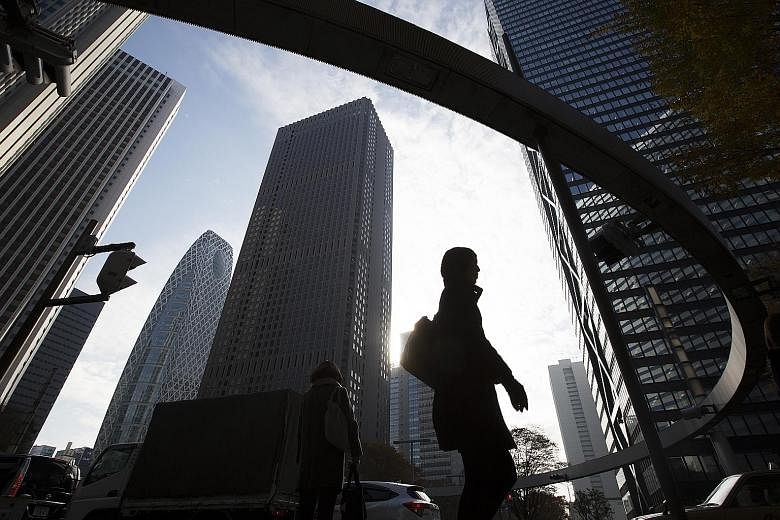TOKYO • The Bank of Japan (BOJ) maintained its money-printing drive at the current rate yesterday, but reorganised its massive stimulus programme to advance Premier Shinzo Abe's plans to prod companies into boosting wages and investment.
As widely expected, the central bank kept intact its policy target of increasing base money - or cash and deposits in circulation - at an annual pace of 80 trillion yen (S$920 billion) and the pace at which it buys government bonds and trust funds investing in stocks and property. But it decided to extend the duration of the Japanese government bonds (JGBs) it buys from 10 to 12 years from next year and set up a 300 billion yen fund to buy exchange-traded funds (ETFs) that target firms actively spending on capital expenditure and wages.
BOJ governor Haruhiko Kuroda said the new steps do not amount to expanded monetary easing.
"We've taken steps to supplement QQE (quantitative and qualitative easing) so that we can expand the programme without hesitation if needed," he told a news conference after the decision.
"Companies and households are shifting away from a deflationary mindset. But there are discrepancies among sectors, so we want to broaden the positive momentum. We want to do whatever we can to support this drive."
Yesterday's moves underscore the BOJ's resolve to aid Mr Abe's efforts to pressure companies into diverting more of their record profits to wage hikes and new investment, which are crucial to sustainably pull the economy out of deflation.
But the new policy emphasis also underscores the BOJ's concerns over how long it can keep buying assets at the current rate, having already gobbled up 30 per cent of JGBs on issue. The central bank said after its December monetary policy meeting it would initially target ETFs that track the JPX-Nikkei 400 index, which features companies that promote transparency and good governance.
The BOJ also said it would start selling, from April next year, the shares it had bought from financial institutions, giving it the power to buy shares of companies that meet its wage and investment standards and sell shares of those that don't.
The central bank said that it would expand and extend a loan scheme by a year for companies with high potential.
Tokyo stock prices initially surged on the announcement but quickly pared gains as markets saw the new steps as a return to the incremental policy style Mr Kuroda said he had abandoned when launching his QQE programme in 2013.
"The BOJ had never imagined that it would need to continue with QQE for this long," said Ms Naomi Muguruma, senior market economist at Mitsubishi UFJ Morgan Stanley, yesterday. "Today's step marks a shift from shock therapy to a long drawn- out struggle in its efforts to achieve 2 per cent inflation."
REUTERS


